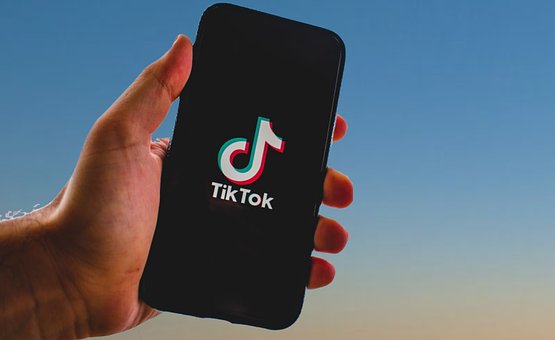
In the summer of 2020, the United States government issued an executive order seeking to ban the popular Chinese-owned social media platform, TikTok. The executive order claimed that the app was a national security threat and was being used to collect data on American citizens. The order was met with a backlash from users and the company’s parent company, ByteDance, who denied the allegations.
Fast-forward to 2023, Tik Tok could be on its way out of the United States after the Biden administration ordered the Chinese owners to sell their shares or risk a ban. Although the Democrats and the Republicans vary on several issues, MPs and Senators of both parties have hinted at pushing for the Tik Tok ban. Most interestingly, the White House has also given a hint that Joe Biden would not hesitate to sign such a bill.
National security adviser, Jake Sullivan, said the bipartisan bill “would strengthen our ability to address discrete risks posed by individual transactions, and systemic risks posed by certain classes of transactions involving countries of concern in sensitive technology sectors.”
“We look forward to continue working with both Democrats and Republicans on this bill, and urge Congress to act quickly to send it to the President’s desk,” Sullivan added.
But why did the US government want to ban TikTok in the first place?
Data security concerns: Chinese government influence and espionage
One of the reasons behind the move to ban TikTok was concerns about the security of user data. TikTok, which has more than 100 million users in the US alone, has been accused of collecting and sharing data with the Chinese government. Some American lawmakers expressed concern that the Chinese government could use the app to gather information on US citizens and potentially use it for espionage purposes.
Senator Marco Rubio, a Republican from Florida, stated in a tweet, “TikTok is Chinese owned & beholden to the Chinese Communist Party (CCP). In China, apps like TikTok are used to censor speech and surveil citizens. If TikTok exists in the U.S., it must answer to our laws & security standards, not China’s.”
Censorship and Propaganda: manipulating public opinion and controlling the narrative
Another concern expressed by US lawmakers was the unavailability of TikTok in China. The Chinese government has blocked access to several popular US-owned social media platforms, including Facebook, Instagram, and Twitter. Some American lawmakers saw the banning of TikTok as a way to level the playing field, as Chinese companies have been able to access the US market while US companies have been blocked in China.
In a statement, Senator Josh Hawley, a Republican from Missouri, said, “The Chinese Communist Party’s stranglehold on this app, which is used by millions of Americans, is deeply concerning. This is an important step in protecting the data security and privacy of American consumers, reducing the influence of CCP propaganda in our society, and holding China accountable for its egregious actions.”
US-China tensions: Trade wars and national security issues
The move to ban TikTok also came amidst growing tensions between the US and China over trade and national security issues. The Trump administration had already imposed tariffs on Chinese goods and had placed restrictions on Chinese tech companies like Huawei. The ban on TikTok was seen as another way to put pressure on the Chinese government.
In response to the executive order, TikTok filed a lawsuit against the Trump administration, arguing that the ban was unconstitutional and violated the company’s rights. The company also denied the allegations of data collection and sharing with the Chinese government.
After a lengthy legal battle, the Biden administration dropped the effort to ban TikTok and instead sought to review the security concerns associated with the app. TikTok has also taken steps to reassure users that their data is secure and has established a US-based subsidiary to address concerns about its Chinese ownership.
The controversy surrounding TikTok highlights the growing tension between the US and China over issues related to trade, national security, and technology. While the US government has dropped its efforts to ban TikTok, the issue is far from resolved and is likely to continue to be a topic of debate in the years to come.
In addition to the concerns about data security and the unavailability of US social media platforms in China, there were other reasons why the US government sought to ban TikTok. Some lawmakers argued that the app had the potential to spread misinformation and propaganda, particularly during an election year.
Senator Chuck Schumer, a Democrat from New York, stated in a letter to the US intelligence community, “It’s clear that TikTok, a Chinese-owned company, is using its enormous social media footprint to sway public opinion and manipulate the American people. TikTok has potential national security and privacy risks, and it should be thoroughly investigated.”
Furthermore, some lawmakers were concerned about the potential for censorship on the app, particularly when it came to content related to sensitive political issues. TikTok has been accused of censoring content related to the Hong Kong protests and other sensitive topics, raising concerns about free speech and the ability of the Chinese government to control the narrative.
Senator Tom Cotton, a Republican from Arkansas, stated in a tweet, “TikTok is a Trojan horse for the Chinese Communist Party that exposes our data and our children’s data to the Chinese government. It’s past time we take action against this threat to our national security and our values.”
At the beginning of March, the US instructed government agencies to delete TikTok from federal devices and systems within 30 days due to data security concerns. Although some US lawmakers are pushing for a complete ban, the current ban only affects government devices. China criticized the US for the TikTok ban, accusing it of abusing state power and suppressing foreign firms. Additionally, more than half of the 50 US states, Congress, and the US armed forces have banned the app from their official devices.
Politics or national security: The debate behind the ban
While the concerns about TikTok may be valid, some critics argue that the move to ban the app was more about politics than national security. The ban was seen by some as a way for the Trump administration to appeal to its base and distract from other issues, such as the COVID-19 pandemic and racial tensions in the US.
Last week, the spokesperson of China’s Foreign Ministry, Wang Wenbin, said the United States was yet to provide any evidence that Tik Tok was a national security threat to the country.
“The US side has so far failed to produce evidence that Tik Tok threatens US national security,” Wang Wenbin said. China has also vowed to oppose the forceful sales of the video-sharing app, saying it would damage investors’ trust in the United States.
In a nutshell, the move to ban TikTok in the US was driven by concerns about data security, censorship, and the unavailability of US social media platforms in China. While the Trump administration sought to ban the app, the Biden administration has taken a more measured approach, seeking to review the security concerns associated with the app. The controversy surrounding TikTok highlights the growing tensions between the US and China over issues related to trade, national security, and technology, and is likely to continue to be a topic of debate in the years to come.













0 Comments